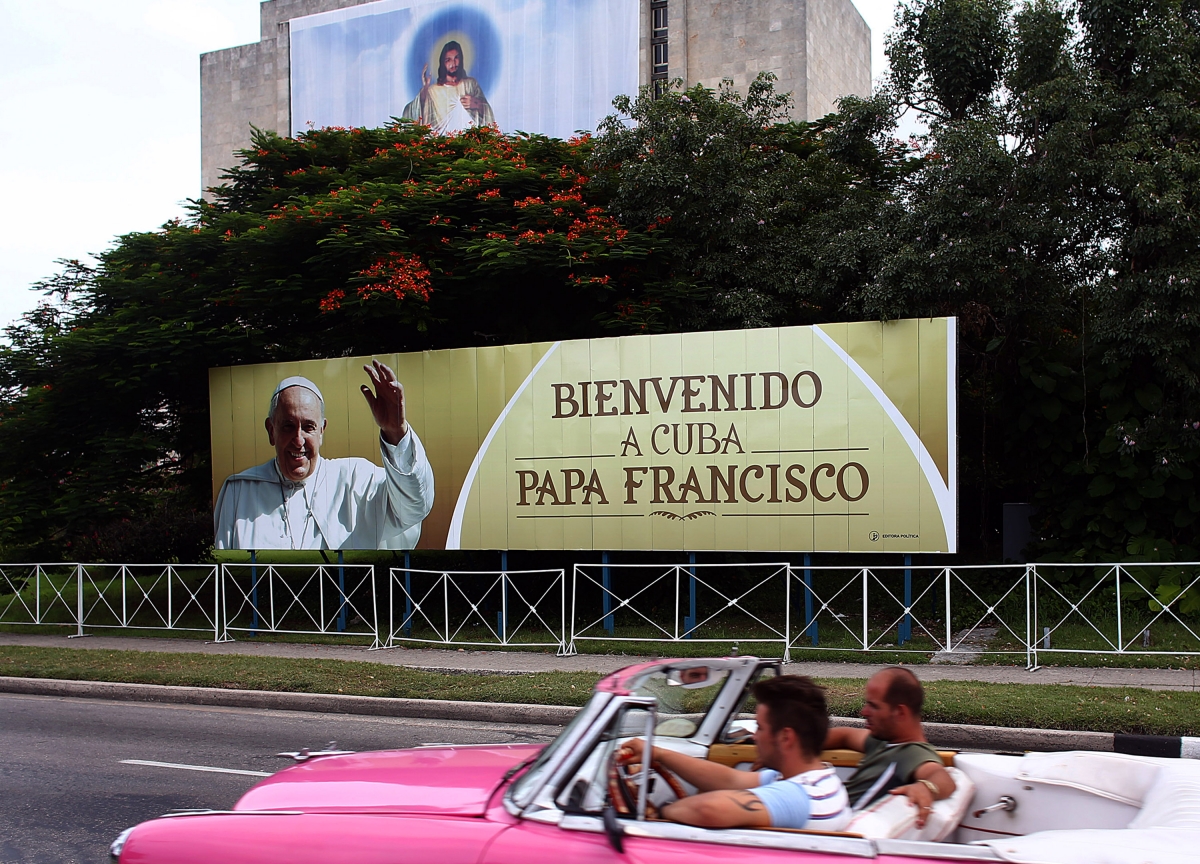Pope Francis in Cuba: Communist nation in flux prepares itself for the visit of Catholic leader [Photos]
Pope Francis will make both the longest trip of his papal reign to date, and his first visit to Cuba, starting tomorrow (19 September), as he spends four days in the Communist nation before moving on to the United States. The Vatican has said it hopes the trip leads to a further thawing of relations between Cuba and the US, as well as leading to greater human rights on the island.
Cardinal Pietro Parolin. secretary of state for the Holy Cee, said he was particularly keen to see the end of American trade and economic embargoes against Cuba as they hurt the lives of ordinary citizens.
"It is hoped ... that [ending the embargo] will also bring with it a greater openness from the point of view of freedom and human rights," Parolin said.
He added that the Vatican hoped for "a flowering of these fundamental aspects for the life of persons and peoples".
The visit of Pope Francis comes at a time where Catholicism is flourishing once more in the former Spanish colony. Although religion was never officially outlawed during the reign of Fidel Castro, it was seen as being incompatible with Marxist-Leninism and many Catholic priests were booted from the country in the aftermath of the revolution, accused of being supporters of Spain's Francisco Franco.
Francis arrives in Havana on 19 September, where he will be met by President Raul Castro. It is unknown if Raul's brother, Fidel, will be in sufficient health to meet Francis. The Pope is scheduled to give mass in Havana's Revolution Square, in front of its mural of leftist guerilla leader and national icon Che Guevara, before visiting Santiago to pray in the Basilica of the Virgin of Charity of Cobre, a church dedicated to Cuba's patron saint.















© Copyright IBTimes 2025. All rights reserved.





















